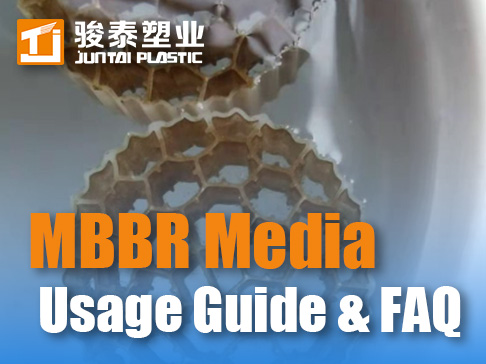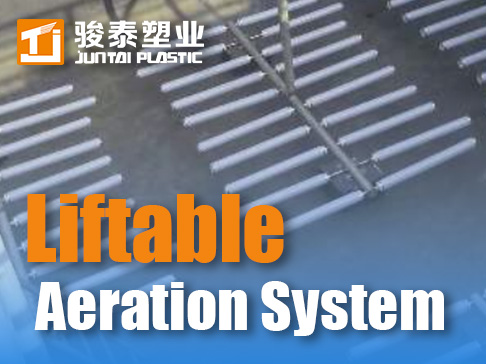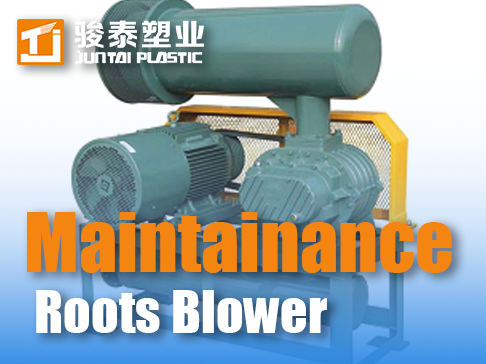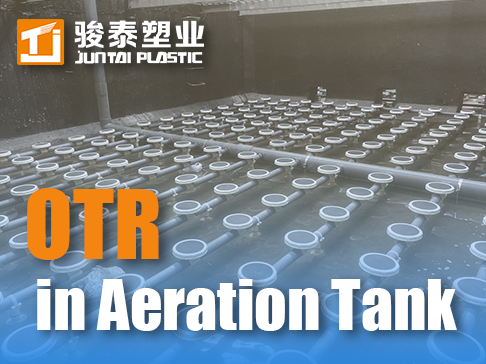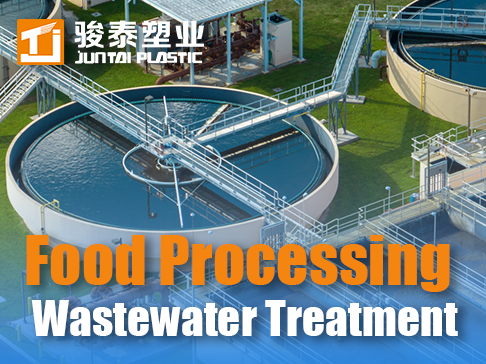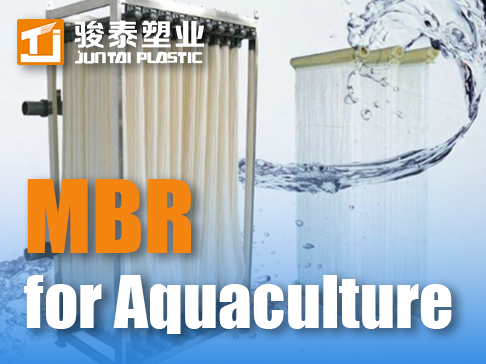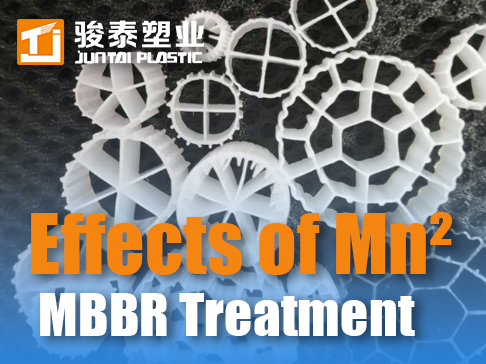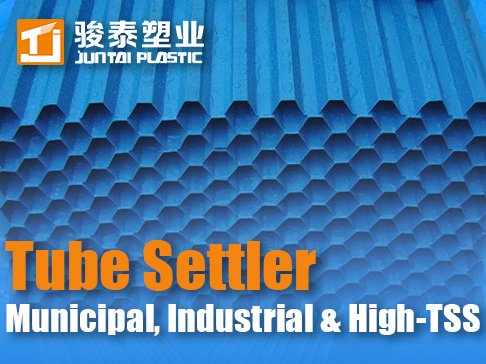 +86 13600513715
+86 13600513715 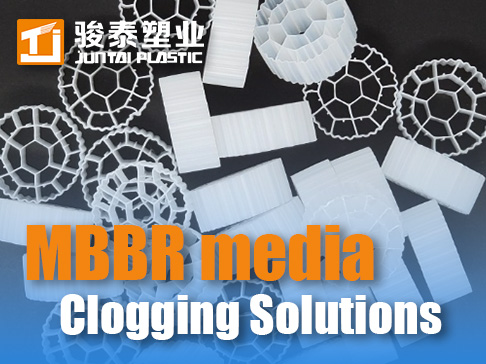
MBBR Clogging Solutions: Prevention, Control & Advanced Technologies
Stop MBBR clogging! Expert guide to carrier agglomeration, screen blockage & biofilm control. Learn interception systems, predictive maintenance & case studies.
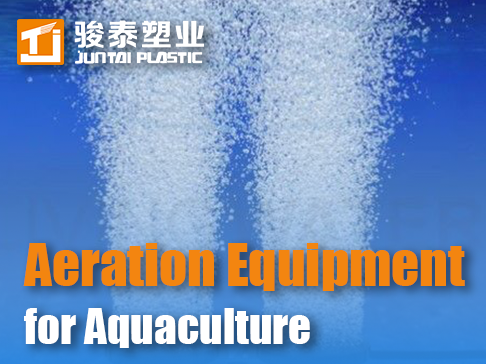
Aquaculture Aeration Systems: Selection, Optimization & Cost Analysis | Expert Guide
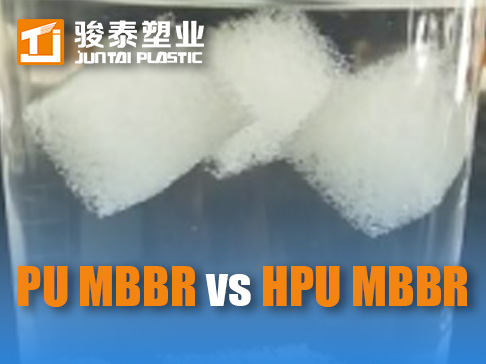
PU MBBR vs HPU MBBR: Technical Comparison & Selection Guide
Compare PU & HPU MBBR biofilm carriers: density, pore structure, applications (COD/BOD), oxygen efficiency & sludge yield. Technical selection guide for Wastewater Treatment.
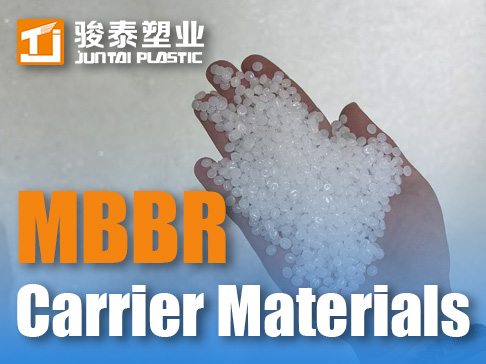
MBBR Carrier Materials: PE, PU, EPDM & Composites Compared
Expert guide to Mbbr Carrier materials. Compare PE, PU, EPDM & composites for biofilm adhesion, chemical resistance, and lifespan in municipal/industrial wastewater.
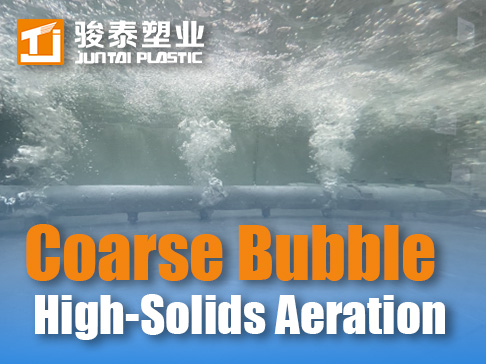
Coarse Bubble Diffusers: High-Solids Aeration & Maintenance Guide | JUNTAI
Maximize uptime in tough wastewater conditions! Expert guide to coarse bubble diffuser selection, fouling control, and maintenance for high-TSS applications.
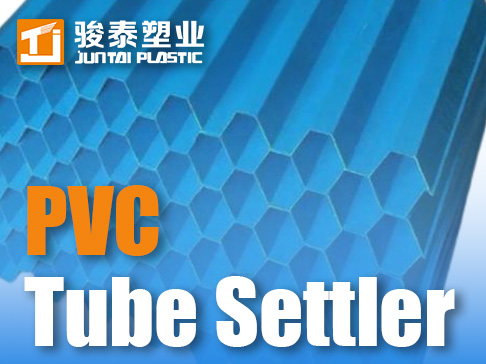
How to Assemble PVC Tube Settler Securely & Key Precautions
Discover why solvent fusion is the optimal method for connecting PVC inclined pipes. Avoid thermal degradation risks of heat guns, learn glue selection criteria, surface prep techniques, and curing protocols for leak-proof joints.
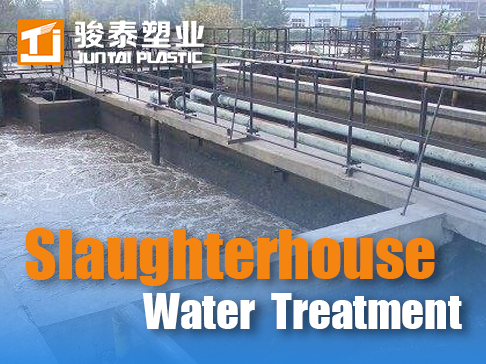
Decentralized Slaughterhouse Water Reuse: Achieving 85% Recycling with Modular Treatment Trains
Achieve 85% water recycling in meat processing with modular systems: Recover heat, extract blood proteins, produce fertilizer. Case study: $380k/year savings in Canadian slaughterhouse.
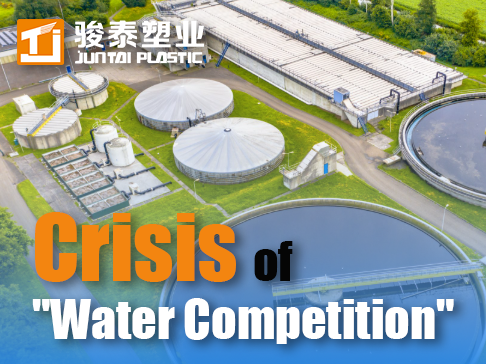
Innovative Approaches to Tackle Low-Concentration Wastewater Challenges
Discover expert strategies for low-concentration sewage: carbon optimization, CANON process & MBBR tech. Case studies show 30% cost reduction. China wastewater plant solutions.
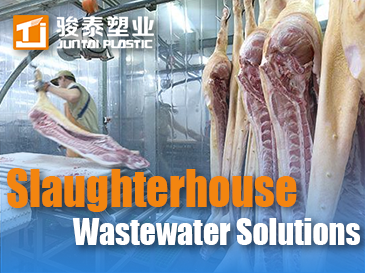
Slaughterhouse Wastewater Solutions: Achieve 99% FOG Removal & Zero Violations
Discover integrated slaughterhouse wastewater treatment: Remove fats/blood with thermal-DAF, anaerobic MBBR for high-strength organics, tube settlers for polishing. Case study: 100% compliance achieved.
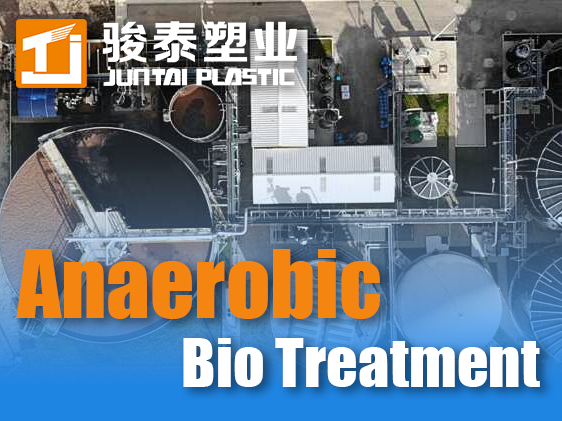
Anaerobic Biological Treatment: Characteristics and Influencing Factors
Anaerobic biological treatment is a process that decomposes organic pollutants in the absence of oxygen, utilizing anaerobic microorganisms to convert complex organic compounds into methane (CH₄) and carbon dioxide (CO₂). This method is widely applied in high-strength wastewater treatment and sludge stabilization due to its energy efficiency, low sludge production, and ability to degrade recalcitrant organic matter.




